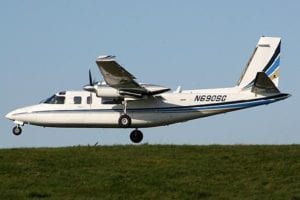The local aviation industry is in uproar over a new tax that will have far-reaching effects on revenue and employment for the entire supply chain.
It is due to be introduced in six weeks’ time.
The South African Revenue Service (Sars) in May proposed amendments to the Customs and Excise Act of 1964 that would include 7% customs duty and 7% excise duty on the importation or domestic sale of small aircraft weighing between 450kg and 5 000kg. The draft notice, as well as the treasury’s February budget review, said this tax would be effective from October 1.
So potentially disastrous are the effects that the Commercial Aviation Association of Southern Africa commissioned a study on the impact of this tax and submitted it to Minister of Finance Pravin Gordhan.
General aviation contributes about R27-billion to the economy, provides about 138 000 jobs and contributes at least R3.2-billion in tax. It also has huge spin-offs for tourism, agriculture and mining, the association said.
According to Sars spokesperson Adrian Lackay, an ad valorem duty is a tax normally imposed on luxury goods to influence consumer behaviour.
“These aircraft are the aircraft that are most likely to be privately owned by wealthy individuals.”
Wide variety
Not so, says the industry. The research, conducted by Keith Lockwood, an independent economist and adjunct faculty member at the Gordon Institute of Business Science, found that although the proposed customs and excise duties were to be levied on a seemingly narrow weight category, they would affect a wide variety of aircraft with uses that extend far beyond the leisure activities of the wealthy. Aircraft that would be affected include those used for tourism, especially for connection flights to game reserves, as well as for pilot training, medical rescue, law enforcement, border patrol, mining surveys, agriculture (crop spraying), wildlife translocation, emergency breakdowns and vehicle theft recovery. The South African Civil Aviation Authority’s aircraft register shows 13778 aircraft are registered and of those 12663 fall within the under-5700kg range. “Seventy-six percent of all registered aircraft have weights of less than 1800kg and around 90% fall within the weight categories of the proposed amendments,” the report stated.
The report assumed that if the tax caused a mere 1% increase in the price of associated air travel for light aircraft only, it would result in a more than R81-million decline in annual sales across the economy. Labour remuneration would decline by close to R13-million a year and gross domestic product would shrink by about R33-million. The combined negative effect on tax collections would be R7.2-million a year and 129 fewer jobs would be supported. “The harm that this tax will impose set against potential revenue to be earned by the state, does not bear comparison,” the association said in a press release. The department of trade and industry has identified the aviation industry as a sector deserving of incentives for development assistance, particularly for its pivotal role in ensuring relatively safe skies in sub-Saharan Africa. Lackay said the proposed imposition of a new tax was market-sensitive information, so public consultation would normally take place after its announcement. “The draft legislation was circulated for comment on 14 May 2012 and the comments provided are being considered.” He said he doubted the tax would be ready for implementing on October 1. Source: http://mg.co.za
Not so, says the industry. The research, conducted by Keith Lockwood, an independent economist and adjunct faculty member at the Gordon Institute of Business Science, found that although the proposed customs and excise duties were to be levied on a seemingly narrow weight category, they would affect a wide variety of aircraft with uses that extend far beyond the leisure activities of the wealthy. Aircraft that would be affected include those used for tourism, especially for connection flights to game reserves, as well as for pilot training, medical rescue, law enforcement, border patrol, mining surveys, agriculture (crop spraying), wildlife translocation, emergency breakdowns and vehicle theft recovery. The South African Civil Aviation Authority’s aircraft register shows 13778 aircraft are registered and of those 12663 fall within the under-5700kg range. “Seventy-six percent of all registered aircraft have weights of less than 1800kg and around 90% fall within the weight categories of the proposed amendments,” the report stated.
“If it is indeed the purpose of the finance minister to tax luxury aircraft, the tax should be targeted accurately and specifically,” the association said.
In the report, Lockwood said neither the budget nor the subsequent notice provided any motivation for the proposed changes. IncentivesThe report assumed that if the tax caused a mere 1% increase in the price of associated air travel for light aircraft only, it would result in a more than R81-million decline in annual sales across the economy. Labour remuneration would decline by close to R13-million a year and gross domestic product would shrink by about R33-million. The combined negative effect on tax collections would be R7.2-million a year and 129 fewer jobs would be supported. “The harm that this tax will impose set against potential revenue to be earned by the state, does not bear comparison,” the association said in a press release. The department of trade and industry has identified the aviation industry as a sector deserving of incentives for development assistance, particularly for its pivotal role in ensuring relatively safe skies in sub-Saharan Africa. Lackay said the proposed imposition of a new tax was market-sensitive information, so public consultation would normally take place after its announcement. “The draft legislation was circulated for comment on 14 May 2012 and the comments provided are being considered.” He said he doubted the tax would be ready for implementing on October 1. Source: http://mg.co.za







